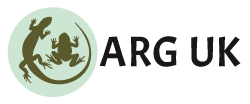About us
About Us
Who we are
We are a small, informal grassroots conservation group dedicated to the conservation of amphibians and reptiles in Bedfordshire. We are affiliated to the Bedfordshire Natural History Society, we are also members of the Beds Heathland Forum. In the past, we have helped draft Species Action Plans (SAPS) for both Bedfordshire Adders and Great Crested Newt. We are also affiliated with the Amphibian and Reptile Groups UK (ARG UK), the organisation that helps with coordinating regional ARGs.
Membership
We welcome both people who prefer to work as individuals, and people who prefer to work in cooperation with others through the Group. We occasionally organise outings and training sessions, for our members. These include such activities as workshops, particularly for people who wish to qualify for a GCN license. It doesn't matter if you've never surveyed for a newt or a lizard before, we'll be able to help train you and pair you up with someone to help generate data in your local area. At present membership is free, all you need to do to become a member is contact us.
Current members can log into the BedsRAG ARGWEB using the button below.
Our aims
At present, much of our activity has been concentrated on specific sites in the south of the county. We are only too aware of how little we know about North Bedfordshire. Bedfordshire is richer in herps than one might expect, our aim to try to map as much as this diversity as possible, through the use of targetted surveys and casual observations. If you spot any amphibians or reptiles in Bedfordshire, please report them using the appropriate tab above. Much of Bedfordshire is very poorly surveyed for amphibians and reptiles, we simply do not know what is there. Parts of the county are under severe development pressure and we hope to get a good picture of what is there before it is too late. If are interested in joining the group, and surveying you local patch for either amphibians or reptiles, please get in touch.
As well as the common species, we are also aware of two introduced species: midwife toads and marsh frogs, with one re-introduction: natterjack toads.
News
News
Forest of Marston Vale site surveys
This year's survey season began with a visit to the Forest of Marston Vale Trust (FMVT) forest centre. A small but enthusiastic group attended at the invitation of ranger, Nicola Ceconi. All of the larger ponds on the site were surveyed using torches. Good numbers of great crested newt and smooth newt were found. All newt species were present in the boardwalk pond, sensory garden pond and the dipping pond. We had to watch our step as the the site was alive with common toads moving to and from the ponds. Many of the females had clearly laid eggs. Of course, not to be outdone, common frogs were also in evidence! The health of these water bodies was further evidenced by the presence of good numbers of aquatic invertebrates including many caddisflies.
Following this, several of the group visited the newly created pond at Conquest Wood at Houghton Conquest. Created in June 2022 in partnership with the Newt Conservation Partnership (NCP), this large pond is still murky and establishing, but common toads have already taken up residence!
Whipsnade Zoo Pond Surveys 14/04/22
The evening of 14/04/2022 saw members of BedsRAG invited to take part in the surveying of ponds within Whipsnade Zoo as kindly organised by staff at ZSL.
Several ponds where surveyed by torchlight within the zoo, some inside the enclosures ( the animals where locked away in their night time quarters) and others outside of the enclosures but within the grounds.
The ponds generally produced healthy populations of Common Frogs, Toads and Smooth Newts with spawn and tadpoles also recorded across the site.
Aquatic invertebrate life was diverse across the ponds with many species seen. The large concrete pond within the Giraffe enclosure proved to be the most heavily populated and diverse along with holding the largest amount of Smooth Newts, so many in fact that it was virtually impossible to actually count them.
The staff were excellent hosts and very knowledgeable about native species and conservation projects within the park.
BedsRAG would like to thank Matthew Webb and his team for organising the trip and being extremely accommodating.
Photos are of BedsRAG members and Whipsnade staff during the trip and supplied by those above. 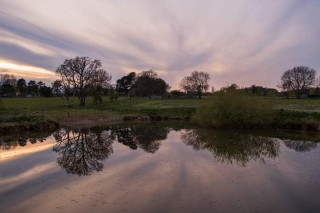
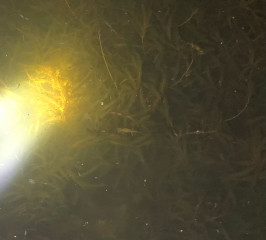
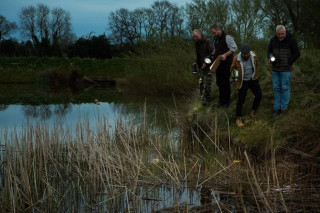
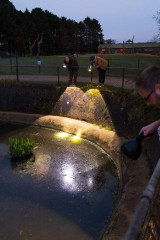
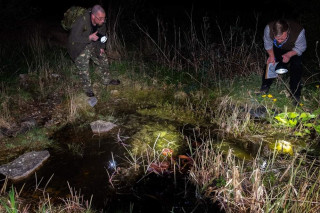
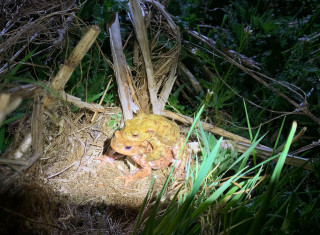
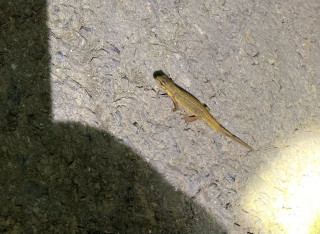
Clophill Lakes torchlight site survey 18/03/22
On 18/03/22 the group was lucky enough to be given access to the future Clophill Lakes nature reserve complex owned and currently being developed by The Greensand Trust ( Luckily our chairman Lloyd Rose knows the site well and has had access to survey the closed site for some time now).
We began our night night on the site of Cainhoe Castle to survey a previously surveyed drainage channel, the channel had quite a fast flow of water running through it into the vernal ponds and marsh area from the rain a few days prior to the visit but it still produced a few common toads ( Bufo bufo).
Passing back through the site heading towards some old fishery lakes numerous toads were recorded on the pathways, in vernal pools, in puddles and most drainage ditches along with some freshly deposited spawn on a path that one of our members carefully moved to a nearby body of water.
Multiple clumps of frog spawn and a few common frogs (Rana temporaria) were recorded in some of the tree lined pools and ditches on the walk through the large site.
Once reaching the smaller lake more frogspawn was recorded in another run off ditch leading from the lake.
The lake itself is quite deep but has a few shallow areas in some margins with many old willows and other tree species growing in them where the group recorded more frogs and spawn, Toads and a few smooth newts ( Lissotriton vulgaris).
We hope to make another night visit to the site in a few weeks to look into other areas of the site and will hopefully be able to do some daylight surveys for reptiles aswell as amphibians this year.
Thankyou to our members that came out and to Greensand for allowing us access to the site.
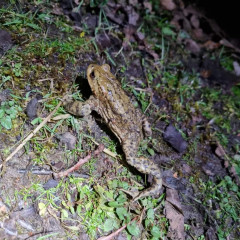
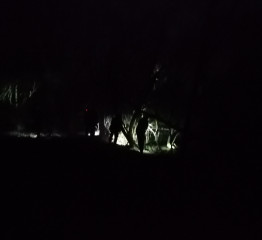
First reformed BedsRAG field survey by torchlight!
Friday the 11th of March saw members of the newly re formed BedsRAG conducting torchlight amphibian surveys at the Greensand Trusts Sandy Smith Nature Reserve just outside of Clophill.
The night started off quite slowly with just a couole smooth newts seen in one of the vernal ponds, moving to the south of the site reasonable numbers of toads were recorded for the time of year with more expected to arrive in the coming weeks as they migrate back to their breeding ponds.
A few more smooth newts were also recorded in the lower ponds.
Upon leaving the site we came across a toad migration on the main road ( Shefford Road) unfortunately large numbers of road deaths were visible but the survivors were safely moved across the road, we have now begun the process of registering the site as a toad crossing.
We will revisit the site in a couple of weeks for a second survey.
Many thanks to those that came along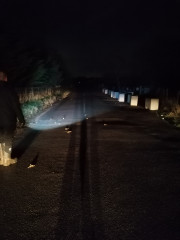
A successful AGM 2022
On the evening of the 23rd January, BedsRAG held it's AGM. One of the goals of the AGM, was to elect a new committee to help the group grow over the coming years. Unfortunately, the previous Chairman (Stephen Nesbit) had to step down due to a change in personal circumstances. Thankfully, a new Chairman was elected at the meeting, among other members of the committee. Lloyd Rose is now the Chairman of BedsRAG, and hopes to start a number of activities across the county soon, to start generating records of where the various amphibians and reptiles occur within Bedfordshire. You can find the contact details for the various committee members on the 'Contact us' page.
The formalities were followed by a talk by Steven Allain on a project he's been involved with since 2017, investigating the origin of various midwife toad populations in Great Britain, and determining if they may be vectors of disease for native species. Bedford is regarded as the first location in Great Britain where midwife toads became established, so Steven's research has focussed somewhat on Bedfordshire, and the wider landscape. Thankfully, the evidence so far suggests that the midwife toad populations in Great Britain are free of pathogens, although their exact point of origin is still to be determined.
Stay tuned for further BedsRAG updates in the near future!
Identification
Identification
Bedfordshire is home to a number of amphibian and reptile species, these may be hard to differentiate to the untrained eye. We've therefore provided the following information to help ensure that species identifications are correct, especially when it comes to recording. The links provided before should help most people when it comes to establishing the identity of an amphibian or reptile. If you're still stuck, then please feel free to contact us.
Amphibians
Amphibians tend to be found in close proximity to water, especially in the spring, although they may be found in terrestrial environments in the summer and autumn. This can sometimes lead to confusion between newts and lizards.
The following amphibians can be found in Bedfordshire:
- Common frog (Rana temporaria)
- Common toad (Bufo bufo)
- Natterjack toad (Epidalea calamita) - REINTRODUCED
- Smooth newt (Lissotriton vulgaris)
- Great crested newt (Triturus cristatus)
- Midwife toad (Alytes obstetricans) - INTRODUCED
- Marsh frog (Pelophylax ridibundus) - INTRODUCED
As far as we're aware, there are no populations of palmate newts, which tend to prefer more upland and acidic sites.
If you're unable to tell which amphibian species you've found, or you're dealing with a young individual, then we recommend this helpful guide from ARG UK.
Reptiles
Reptiles tend to be found in drier habitats than amphibians, they posses scales, and are also more agile than amphibians. Like amphibians, they hibernate throughout the winter months, and emerge again in the spring.
The following reptiles can be found in Bedfordshire:
- Adder (Vipera berus)
- Common (or viviparous) lizard (Zootoca vivipara)
- Grass snake (Natrix helvetica)
- Slow-worm (Anguis fragilis)
If you're unable to tell which reptile species you've found, then we recommend this helpful guide from ARG UK.
Photo gallery
Photo Gallery
Contact us
Contact Us
Dave Willis (Chair)
Upcoming Events
Upcoming events will be listed here.
Latest News
- Forest of Marston Vale site surveys
02/04/2023 10:21 am - Whipsnade Zoo Pond Surveys 14/04/22
16/04/2022 7:59 pm - Clophill Lakes torchlight site survey 18/03/22
19/03/2022 8:17 pm - First reformed BedsRAG field survey by torchlight!
13/03/2022 6:55 pm - A successful AGM 2022
25/01/2022 8:57 pm
© Bedfordshire Reptile & Amphibian Group (BedsRAG)
Website hits: 55547
View All | Find out how to get a mini-website for your ARG
© ARG UK Local Groups mini-websites 2025
Wind powered websites by Aye-aye Design.
